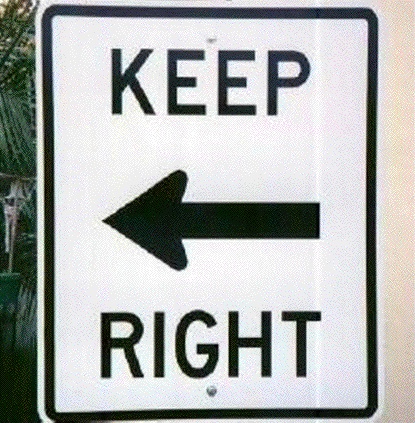Legendary branding pioneer Walter Landor once said, “Simply put, a brand is a promise.”
When I first came across this, I fell in love with the poetry of it.
I was disappointed when I read the quote in context: “Simply put, a brand is a promise. By identifying and authenticating a product or service, it delivers a pledge of satisfaction and quality.”
It gets the job done, but it’s pedantic in comparison to the short version.
This version must have become embedded in my subconscious, because while conducting a branding workshop for a client I had a spontaneous moment.
A brand, I asserted out of the blue, any brand, can be reduced to five words: A sign and a promise.
This owes a lot to Landor's thought, but it adds something too.
It unites the visual and non-visual elements that make up a brand.
The sign is how you recognize a brand.
It’s usually referred to as a logo, but thinking of it as a sign encourages a different point of view, to some advantage.
Think about the attributes of a sign.
The first attribute is legibility.
Is it easy to read?
The second attribute is clarity.
Is its meaning unambiguous?

The best signs or logos share a simplicity that enhances their clarity, like the Nike swoosh, or the FedEx wordmark with its negative space arrow.
I don’t need to show them.
You can already see them.
They’re perfect because, to paraphrase Saint-Exupery there’s nothing left to take away.
When you think of a logo as a sign, you’re seeing it more like a consumer will experience it.
Not as a piece of marketing driven design, but as a guide to getting what they want.
There’s another advantage to thinking of a logo as a sign.
Signs can be metaphysical.
As in: “A sign from God” or “A sign from the universe”.
This type of sign is more than instructional or informative.
It carries a hint of promise with it.
And a promise is the core non-visual attribute of a brand.
Iconic brands have promises that can be summed up in a word or two.
Coca-Cola - refreshment
Volvo - safety
This degree of distillation doesn’t happen overnight.
And a promise of a single word, isn’t suitable for all brands, especially B2B and financial brands which typically market more complex offerings.
But brevity is what all brand promises should aspire to.
As Seth Godin said, “If you can’t state your position in eight words or less, you don’t have a position.”
Eight words or less is a good starting point (even if it took sixteen words to say it).
Defining its promise is the most crucial task a brand faces.
Because after reflecting on my spontaneous exclamation, I realized a brand is not just a sign and a promise - a brand is better positioned as: The sign of a promise.
That promise needs to be enticing enough to make a difference, yet credible enough to be believed.
And most of all it needs to be kept—your customer is trusting you on that.




